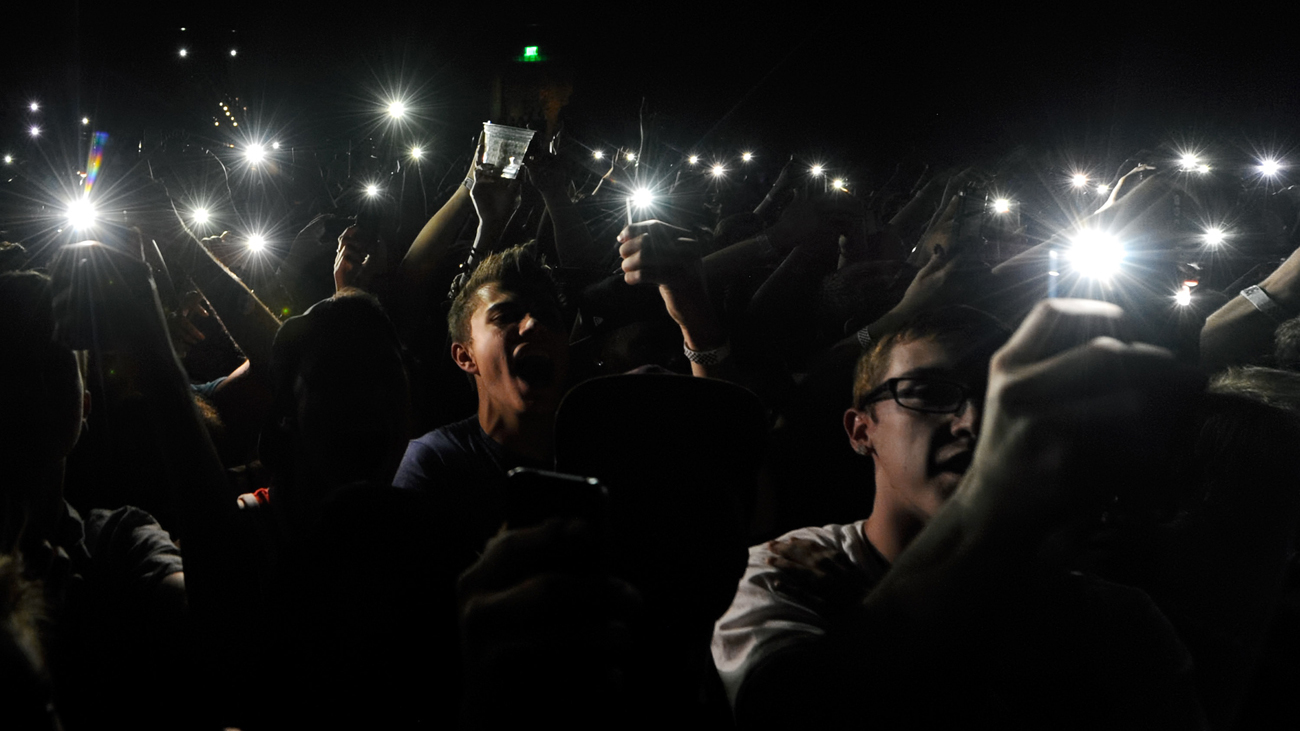Apple has been granted a patent which could temporarily disable iPhone cameras at gigs.
The technology giant first applied for the patent in 2011 and it was granted this week by the United States Patent and Trademark Office.
According to 9to5Mac, the technology has the potential to block an iPhone from recording video or taking a photograph via an infrared signal within a certain range – such as at a concert or in a cinema.
The patent paperwork reads: “An infrared emitter can be located in areas where picture or video capture is prohibited, and the emitter can generate infrared signals with encoded data that includes commands to disable the recording functions of devices.
“An electronic device can then receive the infrared signals, decode the data and temporarily disable the device’s recording function based on the command.”
Artists including Slipknot’s Corey Taylor, Kate Bush and Peter Frampton have all spoken out against fans using camera phones at gigs.
- Lemmy’s life and Motorhead celebrated in new magazine
- Shortest track on new Tool album is '12 minutes long'
- Metallica model Brioni menswear in Bohemian Rhapsody-inspired photoshoot
- Fan called out by Disturbed frontman David Draiman brands him a bully
Music fans have also expressed anger at other gig-goers filming at shows. In an open letter to “people who record gigs on their phones,” Kate Crudgington of Gigslutz writes: “You do not need to use your smart phone – or whacking great tablet – as a substitute set of visual and auditory organs.
“Little details, like the way a particular singer smiled as she sipped her water water in between songs, and how one guitarist’s hands sped like demons up and down the neck of his guitar as he played my favourite riff….these are the moments of raw, live, musical experience you’re missing out on if you choose to live your life through a lens. It’s not worth the sacrifice.”
Artists including Guns N’ Roses have gone further, asking fans to lock their phones in a sealed pouch during their gigs. The pouches are only removed once the performance is over, the Guardian reports.
